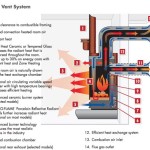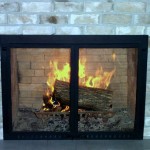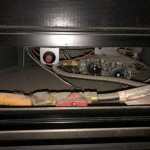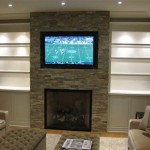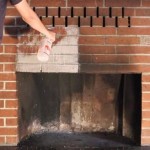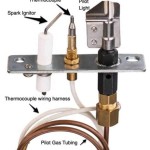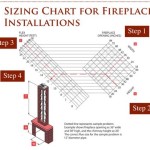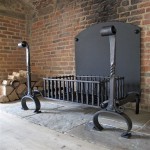Ventless Gas Fireplace Safety Issues
Ventless gas fireplaces, also known as "direct vent" or "infrared" fireplaces, offer a convenient and attractive way to add warmth and ambiance to a home. However, like any gas-powered appliance, they also pose certain safety risks that must be carefully considered. Unlike traditional vented fireplaces, which exhaust combustion byproducts outdoors, ventless fireplaces release these products directly into the room, necessitating a higher level of awareness and caution by homeowners.
This article will delve into the key safety issues associated with ventless gas fireplaces, providing practical advice on minimizing risks and ensuring the safe operation of these appliances.
Potential for Carbon Monoxide Buildup
The most significant safety concern with ventless gas fireplaces is the risk of carbon monoxide (CO) buildup. This colorless, odorless, and tasteless gas is a byproduct of incomplete combustion, a condition that can occur in poorly ventilated spaces. When CO levels rise within a home, it can lead to severe health complications, ranging from headaches and dizziness to unconsciousness and even death.
Ventless fireplaces, by design, release combustion products directly into the living space. While modern models are equipped with safety features that minimize CO emissions, it's essential to ensure adequate ventilation and to install CO detectors near the fireplace. Running a ventless fireplace for extended periods without proper ventilation can lead to dangerous levels of CO accumulation.
Fire Hazards and Improper Installation
While ventless fireplaces are designed to be safe, improper installation or lack of maintenance can create significant fire hazards. These appliances should always be installed by a qualified professional who can ensure adherence to local building codes and manufacturer guidelines.
Here are a few key points regarding installation and maintenance: *
Clearance Requirements:
Ensure that the fireplace has ample clearance from surrounding walls and furniture. *Proper Venting:
Even with ventless fireplaces, proper ventilation is crucial. Exhaust fans or open windows can help dispel combustion products and reduce CO risks. *Regular Maintenance:
Periodic inspection by a qualified technician should include cleaning the burner, checking for leaks, and ensuring proper operation.Health Risks Associated with Combustion Byproducts
Besides carbon monoxide, ventless fireplaces release other combustion byproducts into the air, including nitrogen dioxide (NO2) and particulate matter. While these compounds are generally present at lower levels than CO, prolonged exposure can still lead to respiratory problems, especially in individuals with pre-existing conditions.
It's essential to consider the potential health risks associated with these byproducts, especially if you have children, elderly individuals, or people with respiratory sensitivities living in your home. Ventilation, regular cleaning, and limiting the duration of fireplace use can help mitigate these concerns.
Responsible Use and Safety Tips
While ventless gas fireplaces offer convenience and aesthetic appeal, it's crucial to prioritize safety when using them. Here are some tips to minimize risks: *
Ensure Proper Ventilation:
Always open windows or run exhaust fans while operating a ventless fireplace. *Install Carbon Monoxide Detectors:
Place detectors near the fireplace and test them regularly. *Stay Vigilant with Children and Pets:
Keep children and pets away from the fireplace to prevent burns and accidental fires. *Avoid Overheating:
Do not run the fireplace for extended periods, particularly during hot weather. *Regular Maintenance:
Schedule regular inspections by a qualified technician to ensure the safe and efficient operation of the fireplace. *Follow Manufacturer Instructions:
Adhere strictly to the operating instructions provided by the fireplace manufacturer.By adhering to these safety practices, you can enjoy the warmth and ambiance of a ventless gas fireplace while minimizing risks to yourself and your family.

Are Vent Free Gas Fireplaces Safe Ventless
.aspx?strip=all)
Ventless Fireplaces Explained Safety Of Vent Free Fires

A Ventless Gas Fireplace Doesn T Belong In Your Home Greenbuildingadvisor

Ventless Gas Fireplace Is It Safe

Vented Vs Ventless Gas Logs What S The Difference

Vented Vs Ventless Gas Fireplace Logs

Are Vent Free Gas Fireplaces Dangerous

Are Ventless Gas Fireplaces Safe Smokeyembers Com

The Debate Continues Are Ventless Fireplaces Safe

Vent Free Gas Log Safety Albany Ny Northeastern Fireplace

